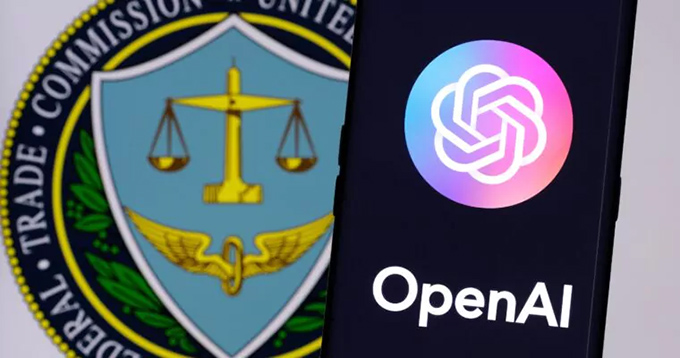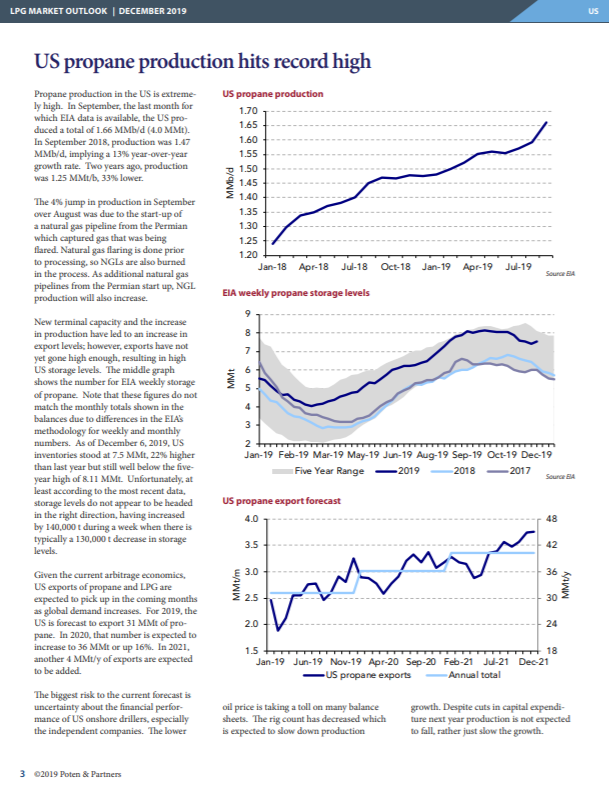FTC Probe Into OpenAI: Implications For The Future Of AI Development

Table of Contents
The FTC's Concerns Regarding OpenAI
The FTC's investigation into OpenAI centers on potential violations of consumer protection laws. Their concerns revolve around several key areas, highlighting the complexities of regulating rapidly evolving AI technologies.
-
Unfair or deceptive trade practices related to data privacy: The FTC is scrutinizing OpenAI's data collection practices, particularly concerning the vast amounts of data used to train its AI models. Concerns exist about whether users are adequately informed about how their data is collected, used, and protected. This includes questions about compliance with regulations like GDPR and CCPA.
-
Potential biases and discriminatory outcomes of OpenAI's models: AI models are only as unbiased as the data they are trained on. The FTC is likely investigating whether OpenAI's models perpetuate or amplify existing societal biases, leading to discriminatory outcomes in areas such as loan applications, hiring processes, or even criminal justice. The potential for algorithmic bias is a significant concern.
-
Lack of transparency regarding data collection and model training: OpenAI's methods for data collection and model training may lack sufficient transparency, making it difficult for users and regulators to understand how these models function and what data drives their decisions. This lack of transparency hinders accountability and responsible development.
-
Concerns about the potential misuse of AI technologies: The powerful capabilities of OpenAI's models raise concerns about their potential misuse for malicious purposes, including the creation of deepfakes, the spread of misinformation, or even the automation of harmful activities. The FTC is likely evaluating OpenAI's safeguards against such misuse.
-
Focus on the impact of AI models on vulnerable populations: The FTC's investigation likely pays close attention to the disproportionate impact of AI bias on vulnerable populations. These groups may be particularly susceptible to the harms caused by biased or inaccurate AI models.
The FTC’s investigation operates under the framework of existing consumer protection laws, aiming to prevent unfair or deceptive practices. The legal precedents set by this case will significantly influence the future regulation of AI development.
Potential Consequences of the FTC Probe
The FTC's investigation into OpenAI could have significant repercussions for both OpenAI itself and the broader AI industry. The potential outcomes include:
-
Significant fines and penalties for OpenAI: Depending on the findings of the investigation, OpenAI could face substantial financial penalties for violating consumer protection laws. These fines could significantly impact the company's financial stability.
-
Changes to OpenAI's business practices and data handling procedures: The FTC might mandate significant changes to OpenAI's data collection, usage, and protection practices. This could involve stricter data privacy protocols and greater transparency regarding model training.
-
Increased regulatory scrutiny of AI development across the board: The FTC's action sets a precedent for increased regulatory scrutiny of AI development across various sectors. Other AI companies are likely to face similar investigations and regulations in the future.
-
Slowdown in AI innovation due to increased regulatory hurdles: While regulation is necessary, increased scrutiny could potentially slow down AI innovation due to added compliance costs and potential legal challenges.
-
Impact on investor confidence and funding for AI startups: The outcome of the FTC's investigation could significantly impact investor confidence and future funding for AI startups. Uncertainty surrounding AI regulation can discourage investments in this rapidly developing field.
The legal ramifications could establish crucial precedents, shaping the regulatory landscape for AI for years to come. The economic consequences extend beyond OpenAI, impacting investor sentiment and the overall growth of the AI sector.
The Need for Responsible AI Development and Ethical Frameworks
The FTC's probe underscores the critical need for responsible AI development and the establishment of robust ethical frameworks. This requires a multi-faceted approach:
-
Establishing clear guidelines for data privacy and security in AI systems: Stringent regulations are needed to ensure the privacy and security of data used in AI model training. This includes clear guidelines on data collection, storage, and usage.
-
Developing methods to mitigate bias and ensure fairness in AI algorithms: Techniques for detecting and mitigating bias in AI algorithms are crucial. This involves careful data curation, algorithm design, and ongoing monitoring for discriminatory outcomes.
-
Promoting transparency and accountability in AI development processes: Greater transparency in AI development is essential for building trust and accountability. This includes clear documentation of data sources, algorithms, and decision-making processes.
-
Encouraging collaboration between researchers, policymakers, and industry stakeholders: Addressing the challenges of responsible AI requires collaboration between researchers, policymakers, and industry stakeholders. Open dialogue and shared responsibility are key.
-
Creating robust mechanisms for addressing potential harms caused by AI: Mechanisms are needed to address potential harms caused by AI systems, including complaint mechanisms, redressal processes, and independent oversight.
Existing ethical frameworks, like the Asilomar AI Principles, offer a starting point, but continuous refinement and adaptation are crucial to keep pace with the rapid evolution of AI technologies. Interdisciplinary collaboration is paramount in navigating the complex ethical and societal implications.
The Future of AI Regulation in Light of the OpenAI Probe
The FTC's investigation is likely to accelerate the development of AI regulations worldwide. Potential future developments include:
-
Increased pressure for comprehensive AI legislation: The investigation will likely spur governments to enact more comprehensive AI legislation addressing data privacy, algorithmic bias, and potential misuse of AI technologies.
-
Development of new regulatory bodies and agencies focused on AI oversight: Dedicated regulatory bodies focused on AI oversight may be created to ensure compliance with emerging regulations and address the unique challenges posed by AI.
-
International cooperation on AI regulation: Given the global reach of AI technologies, international cooperation on AI regulation will be crucial to establish consistent standards and prevent regulatory arbitrage.
-
The potential for self-regulation within the AI industry: While government regulation is essential, the AI industry may also adopt self-regulatory measures to promote responsible development practices and build public trust.
-
The ongoing debate between innovation and regulation: Balancing the need for innovation with the imperative for responsible AI development will remain a central challenge. Finding the right balance between fostering innovation and preventing harm is crucial.
Different regulatory models, from strict top-down approaches to more flexible, collaborative frameworks, are being considered globally. The effectiveness of each approach remains to be seen, necessitating continuous evaluation and adaptation.
Conclusion
The FTC probe into OpenAI represents a pivotal moment for the future of AI development. Its implications are far-reaching, impacting not only OpenAI but the entire AI industry. The potential for significant fines, changes in business practices, and increased regulatory scrutiny underlines the crucial need for responsible AI development and ethical frameworks. This investigation serves as a stark reminder that the rapid advancement of AI requires proactive measures to address ethical concerns and establish robust regulatory safeguards. The future of AI hinges on the collective commitment to building AI systems that are beneficial and safe for humanity. Stay informed about the ongoing developments in the FTC Probe into OpenAI and join the movement for ethical and responsible AI practices. Learn more about the implications of the FTC Probe into OpenAI and contribute to a future where AI benefits all of humanity.

Featured Posts
-
 Faas Focus On Collision Avoidance A Las Vegas Airport Case Study
Apr 24, 2025
Faas Focus On Collision Avoidance A Las Vegas Airport Case Study
Apr 24, 2025 -
 The Changing Landscape Of Chinas Lpg Market From Us To Middle East
Apr 24, 2025
The Changing Landscape Of Chinas Lpg Market From Us To Middle East
Apr 24, 2025 -
 Us Lawyers Face Judge Abrego Garcias Order To Cease Stonewalling
Apr 24, 2025
Us Lawyers Face Judge Abrego Garcias Order To Cease Stonewalling
Apr 24, 2025 -
 Ray Epps V Fox News A Deep Dive Into The January 6th Defamation Lawsuit
Apr 24, 2025
Ray Epps V Fox News A Deep Dive Into The January 6th Defamation Lawsuit
Apr 24, 2025 -
 Open Ais Chat Gpt Under Ftc Scrutiny A Deep Dive Into The Investigation
Apr 24, 2025
Open Ais Chat Gpt Under Ftc Scrutiny A Deep Dive Into The Investigation
Apr 24, 2025
